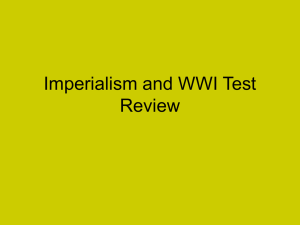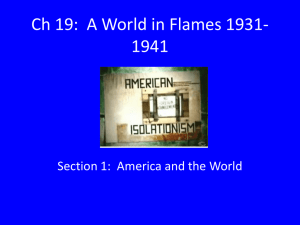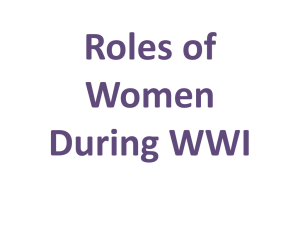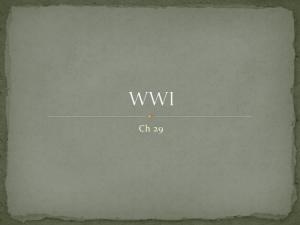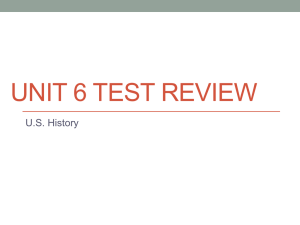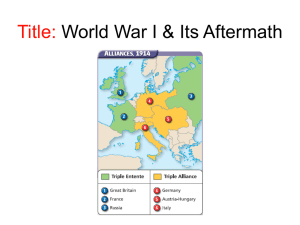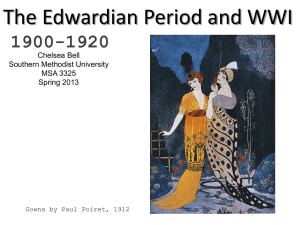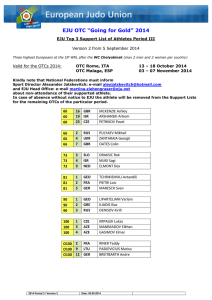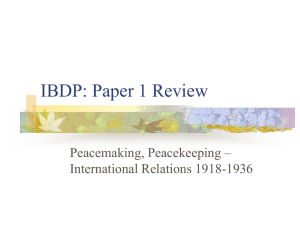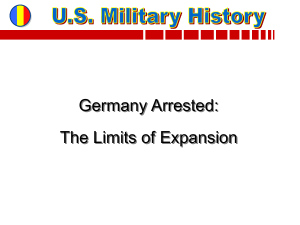WOMEN DURING WWI - smccmodernhistory
advertisement
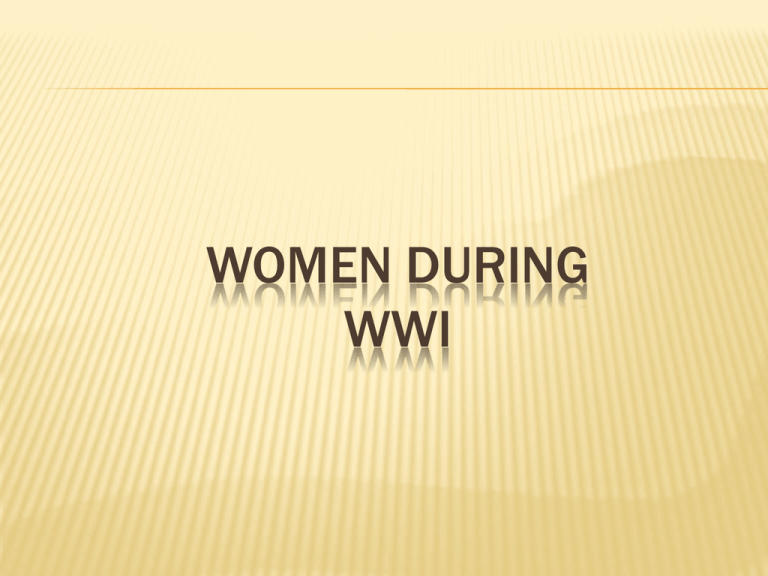
WOMEN DURING WWI WOMEN DURING WWI As the war went on, acute labour shortages developed. Women filled this need. Many women became independent for the first time, earning more than before (but less than men). However, at war’s end, an attempt was made to return to the pre-war situation. WOMEN DURING WWI Similarities between GBR & GER - Women gained more freedom (shorter hair, shorter skirts, smoking in public, going out unchaperoned). - Since 10% of males were killed, many found it difficult to marry or remarry. - At war’s end: GBR women over 30 & all women in GER gained right to vote. - Women became involved with politics. - Women contributed to war effort (working, nursing, volunteer work). WOMEN DURING WWI Differences between GBR & GER - Levels of hardship varied greatly: rationing in GBR -vstarvation & fuel shortages in GER. - Mobilisation rate higher in GER. - Level of independence varied. WOMEN DURING WWI WAR WORK: BRITAIN Some objection from men & unions. Women had 3 kinds of jobs: those normally done by men (eg. clerks, farming, policing) War-related industries (60% of munitions workers) Members of the army auxiliary. Women’s Auxiliary Army Corps (WAAC) founded 1917. They worked in supply, transport, communications. No active duty but had ranks & uniform. WOMEN DURING WWI WAR WORK: GERMANY By 1916, worked in many ‘male’ occupations (eg. clerks, train guards, tram drivers, light industry, railway builders & miners). Dr Gertrude Baumer, head of largest women’s rights organisation, was asked to organise women for war work, which was done better than other nations: 1/3 of Krupp workers female Sunday no longer a day of rest 10-hour days Support for war declined after 1916. WOMEN DURING WWI VOLUNTEER WORK: BRITAIN Voluntary Aid Detachment (VAD) to give help to sick & wounded. Unpaid at first, then £20 a yr. Mostly middle/upper class who faced opposition from professional nurses. Volunteers to work on the land were not enough, so the Women’s Land Army was formed under govt control. VOLUNTEER WORK: GERMANY (no info available) WOMEN DURING WWI POLITICAL ACTIVITY: BRITAIN Most suffragettes supported the war & organised to help by running hospitals, etc. Minority opposed the war, attempted to attend peace conferences & established organisations. Women’s Peace Crusade (formed July 1916) organised huge anti-war demonstrations, gained some middle class support but actions met with hostility. WOMEN DURING WWI POLITICAL ACTIVITY: GERMANY Initially most supported the war. Rosa Luxemburg, socialist writer & politician was imprisoned. Even though govt action -v- strikers was savage, women took part. WOMEN DURING WWI SOCIAL CHANGES: BRITAIN Some reduction in class barriers as number of domestic servants & women from middle/working classes mixed through war & volunteer work. Women from all classes worked; many for 1st time, proved competent, conflict between men & women, paid less. WOMEN DURING WWI SOCIAL CHANGES: BRITAIN Employment led to independence. Suffrage for women in 1918. Marriage patterns altered: divorces (300%), man shortage. More relaxed fashion (skirts, hair) & behaviour (public smoking). WOMEN DURING WWI SOCIAL CHANGES: GERMANY Class barriers reduced due to defeat & forced reforms: all women equal in legal/political terms. Women in towns faced food, clothing & fuel shortages. By 1920, 11 million women in work. However, most jobs menial, paid less. WOMEN DURING WWI SOCIAL CHANGES: GERMANY Universal suffrage in 1919. Divorce rate due to relaxation of divorce laws, war marriages & in church attendance. Social behaviour similar to GBR + single girls out unchaperoned.

